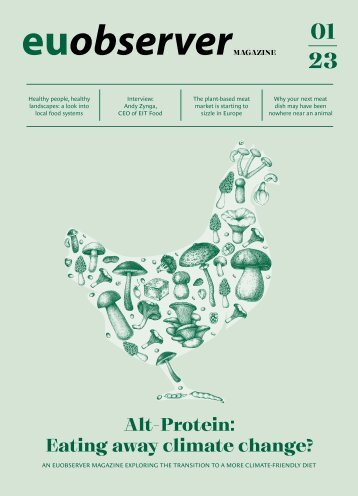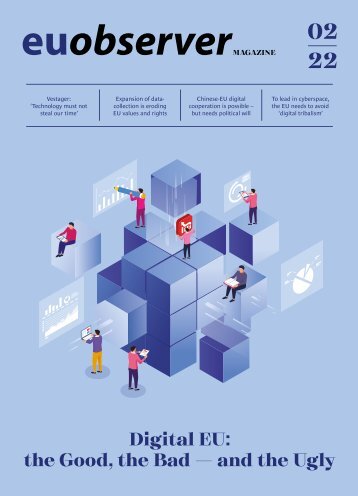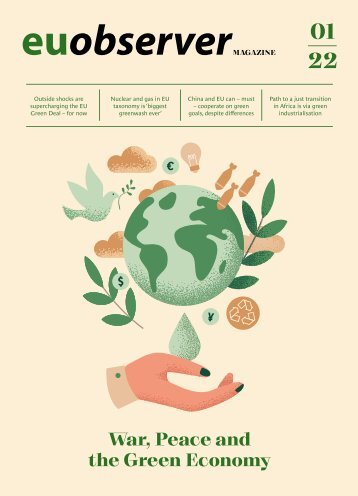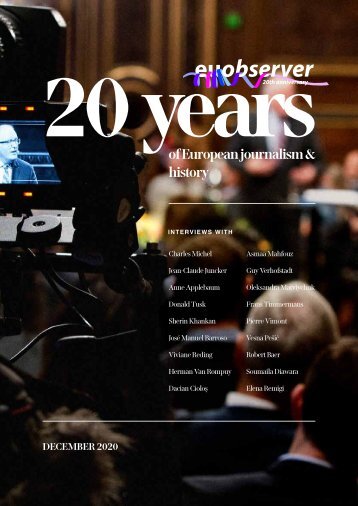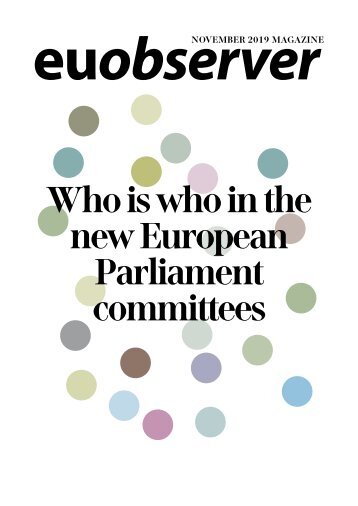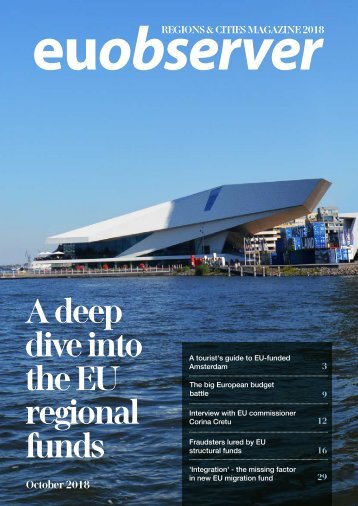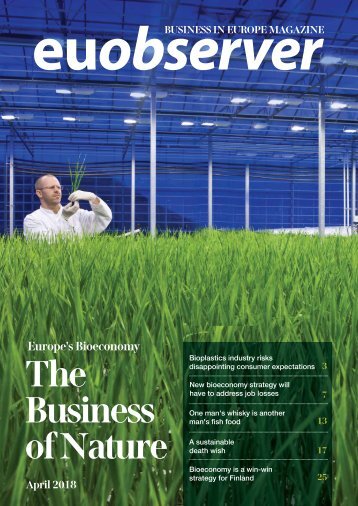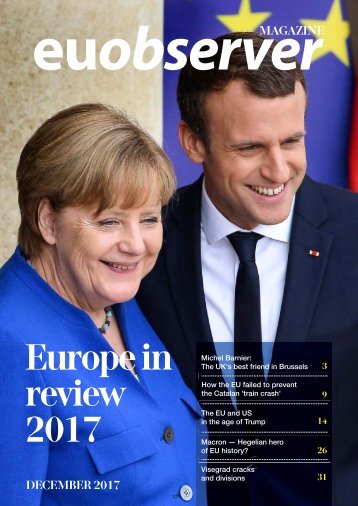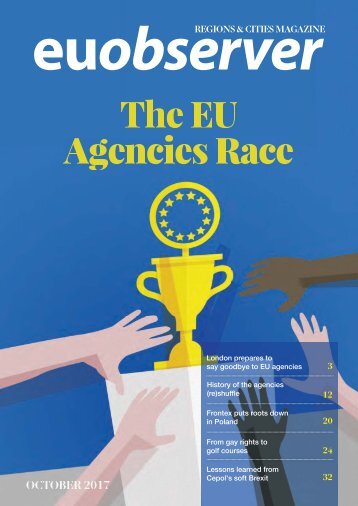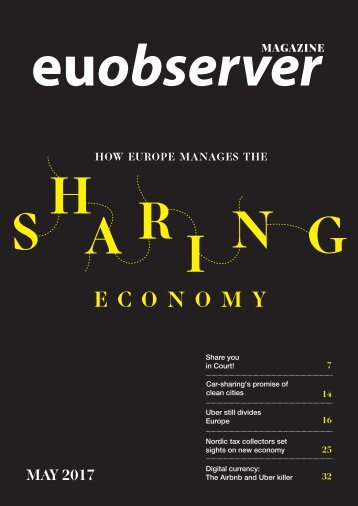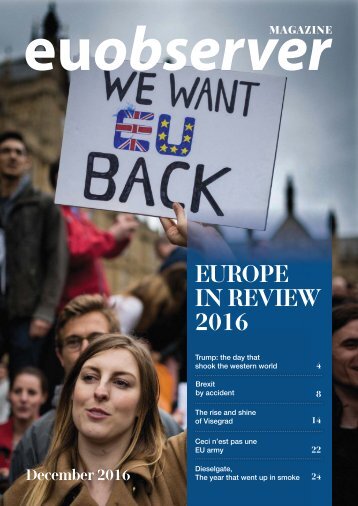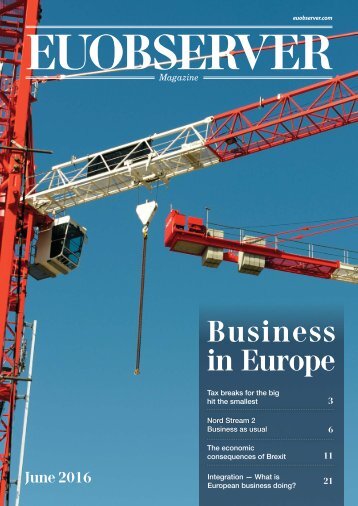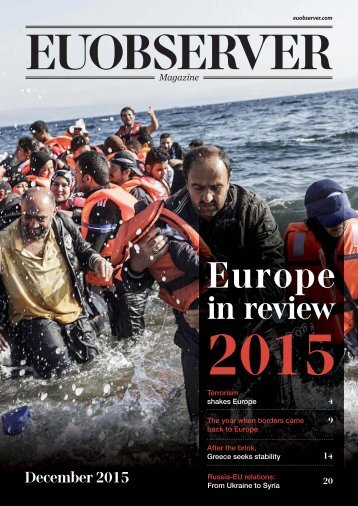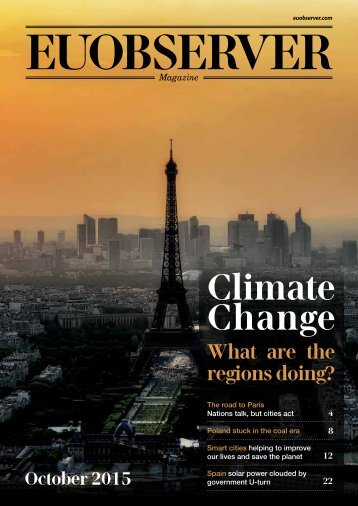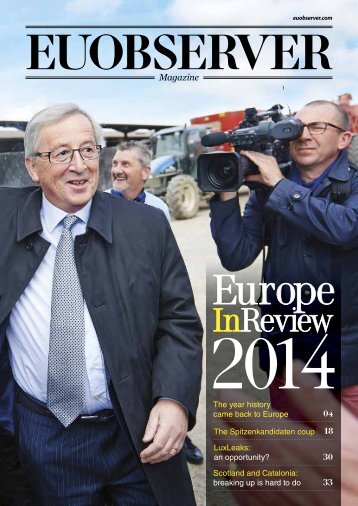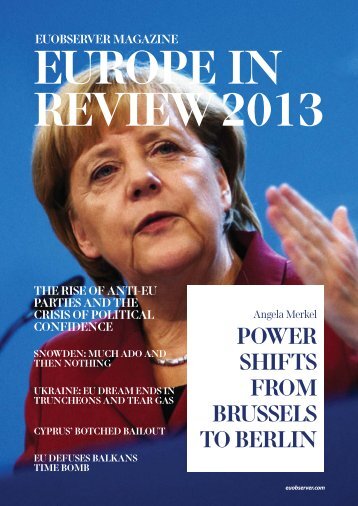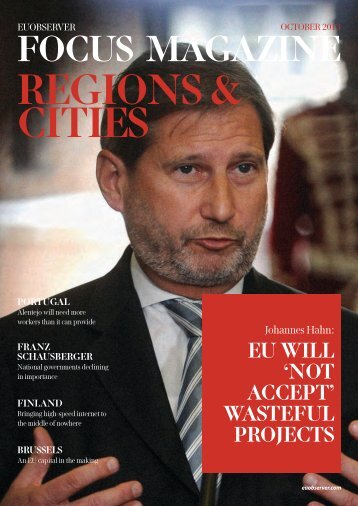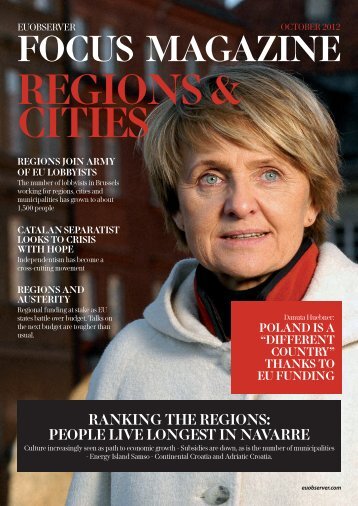Who is who in the new European Parliament committees
- Text
- Equality
- Sustainable
- Chairman
- Gender
- Defence
- Coordinators
- Climate
- Committees
- Parliament
- European
DROI Six priorities for
DROI Six priorities for human rights Human Rights Belgian socialist MEP Marie Arena is chairing the European Parliament's sub-committee on human rights. Her biggest challenge? Finding ways to reach objectives that cover an enormous spectrum of issues — from climate to child protection. By Nikolaj Nielsen The European Union has yet to ratify the European Convention on Human Rights - despite a treaty obligation to do so under Lisbon. In his farewell speech in September, Thorbjorn Jagland, the now former secretary general of the Council of Europe, said it is still not possible to hold the European Union to account, should it violate the convention. With that in mind, ongoing efforts are being made at the European Parliament to scrutinise how the EU implements human rights policy. Among them is the subcommittee on human rights, chaired by centre-left Belgian MEP Marie Arena (S&D). Despite having four vice-chairs hailing from different political groups, Arena says the internal dynamics are so far smooth. All have agreed to cluster their priorities around six big themes for the next two-and-a-half years. "I think the most difficult part will be finding the ways to reach our objectives, and not the objectives themselves - which puts us up to a very good start in my opinion," she told EUobserver. Behind the scenes, the committee's coordinators will be working to align the effort. Marie Arena was a former employment minister in Belgium's Wallonia region. Photo: © European Union 2019 - Source : EP Other big topics like childrens' rights, women's rights, indigenous peoples' rights plus legal impunity will be addressed as cross-cutting issues. The sub-committee's objective for the upcoming years is to ensure that the EU's action on the international scene is guided by the same principles that inspired its creation, according to Arena, as she lists democracy, the rule of law, human rights and fundamental freedoms as examples. The centre-right has Isabel Wiseler-Lima (EPP, Luxembourg) as its coordinator, the socialists Isabel Santos (S&D, Portugal), the liberals' Irina von Wiese (Renew Europe, UK), the greens Germany's Hannah Neumann (Green/EFA, Germany), the conservatives Karol Karski (ECR, Poland), and the far-left Miguel Urbán Crespo (GUE/NGL, Spain). "My wish is to be able to do so without aggravating the situation in countries that are facing threats to their fundamental rights," she said. Turkey's crackdown on opposition and journalists, the plight of the Rohingya in Myanmar, activists pressing for women's rights in Iran, are all difficult cases. The areas are vast. At the top of the list is the environment and climate change, core issues that have galvanised a global movement led by the Swedish 16-year old, Greta Thunberg. But the wider backlash against civil society and human rights also poses challenges within the EU itself - as Hungary puts the squeeze on migration, and Poland undermines the rule of law. The committee will also focus in on business and human rights, minorities and freedom of religion, civil society, migration, and new technologies. "If we are able to promote fundamental values and see concrete signs of improvement, even if just on one case or one region, that would be the greatest achievement in my opinion," Arena said, when asked for her hopes for over the coming five years. 08 — EUROPEAN PARLIAMENT COMMITTEES
SEDE EU buys guns Gearing up for EU spending on arms procurement will be a top priority for the subcommittee on security and defence, according to its French chairwoman - but ethical questions remain. By Andrew Rettman Security and Defence Gearing up for the first big wave of EU spending on arms procurement will be a top priority for the European Parliament's subcommittee on security and defence (SEDE), according to its chairman, French liberal politician Nathalie Loiseau. But regulatory and strategic questions remained "unanswered", she said. The committee would "monitor implementation of the tools we've created to enhance our defence union", Loiseau said, naming an alphabet soup of acronyms for EU projects on new defence assets: Pesco, EDF, and EDIDP. These ranged from a police force in Kosovo, to coastguard training in Libya, and an anti-piracy force in the Indian Ocean. Her committee saw eye-to-eye on its agenda, Loiseau indicated, but that did not mean there was no debate. "It's more about unanswered questions than divisive topics, for instance: what is the role of the EU on arms exports?", she said. SEDE's main task should be "improvement of European defence mechanisms", she noted. Permanent Structured Cooperation (Pesco), is to see 29 clubs of assorted EU states develop new attack helicopters, missile systems, and artillery guidance systems, among other hardware. The list also includes drones, autonomous weapons systems, electronic warfare, and military space surveillance, "addressing new challenges," Loiseau said. SEDE's task was to "adopt EDF regulation in full", she added, referring to the European Defence Fund, a €13bn pot for developing new systems. And the committee should guide European Commission spending on the European defence industrial development programme (EDIDP), she said, referring to a separate €590m pot for defence research. Some of SEDE's time would be spent monitoring the EU's 16 overseas civilian and military missions, Loiseau noted. But "I would very much like to see a European defence strategy adopted," she added, with big questions such as: "does the functioning of Nato answer all our priorities in terms of defence of Europe? How do we build a satisfactory defence partnership with the UK after Brexit?", still "unanswered" as well. Loiseau, a former French EU affairs minister and a former director of an elite French academy, is likely to work handin-glove with France's EU commissioner, in charge of the single market, industry, and defence portfolio. French president Emmanuel Macron is a leading proponent of EU defence integration. And while different views exist on Nato versus EU military structures, SEDE also contains a galaxy of former stars from Russia-facing EU states for whom joint arms procurement is welcomed. Romania's former president Traian Băsescu (EPP, Romania) is a member, along with three former Polish foreign ministers: Anna Fotyga (ECR, Poland), Radosław Sikorski (EPP, Poland), and Witold Waszczykowski (ECR, Poland), plus an Estonian one, Urmas Paet (Renew, Estonnia). Nathalie Loiseau (Renew, France), chair of the committee. Photo: Council of the EU The committee's European Parliament group coordinators are: Arnaud Danjean (EPP, France); Sven Mikser (S&D, Estonia); Petras Austrevicius (Renew, Lithuania); Hannah Neumann (Greens/EFA, Germany); Jérôme Rivière (ID, France); Geoffrey Van Orden (ECR, UK); and Mick Wallace (GUE/NGL, Germany). EUROPEAN PARLIAMENT COMMITTEES — 09
- Page 1 and 2: NOVEMBER 2019 MAGAZINE Who is who i
- Page 3 and 4: euobserver EDITORIAL ADDRESS EUobse
- Page 5 and 6: The committees then vote on final d
- Page 7: AFET EU diplomacy 2.0 Foreign Affai
- Page 11 and 12: INTA Making EU trade deals work for
- Page 13 and 14: CONT Fighting corruption and cuttin
- Page 15 and 16: EMPL Employment and Social Affairs
- Page 17 and 18: 17 — EUROPEAN PARLIAMANT COMMITTE
- Page 19 and 20: SUSTAINABLE RESPONSIBLE COMPETITIVE
- Page 21 and 22: TRAN Tackling climate change throug
- Page 23 and 24: AGRI Agriculture and Rural Developm
- Page 25 and 26: CULT Culture and Education A bigger
- Page 27 and 28: LIBE Civil Liberties, Justice and H
- Page 29 and 30: FEMM Women's Rights and Gender Equa
- Page 31 and 32: BRUSSELS 10 NOVEMBER 2019 Letter to
Inappropriate
Loading...
Mail this publication
Loading...
Embed
Loading...

